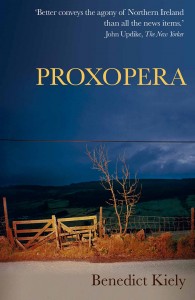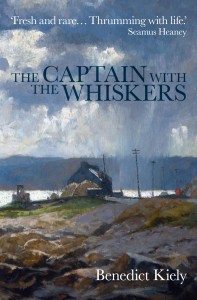Benedict Kiely was one of the most popular, and acclaimed, writers of his generation, as well as a prolific journalist, essayist and broadcaster. Born in 1919, Kiely grew up in County Tyrone and moved to Dublin in the 1940s where he worked for the Irish Independent and the Irish Press. Benedict Kiely died in 2007.
Praise for Proxopera:
“One of those secret classics… It’s a perfect piece of literature and encapsulates the sadness and terror of what went on in Northern Ireland during… ‘the Troubles’.” – Colum McCann, New York Times Book Review
“This great anti-war fable should have been read and should still be read as a terrible warning. A flawless piece of writing.” – Independent
Praise for The Captain with the Whiskers:
“Fresh and rare… Thrumming with life.” – Seamus Heaney
“Deft, sardonic… A writer’s ear for dialogue and a storyteller’s drink-soaked musicality.” – Sinead Gleeson, Irish Times
“A novel of enduring power and wisdom… a new generation of readers should gather up its magic.” – Irish Independent
“Haunting and remarkable.” – Times Literary Supplement
When violent men intrude on his home by the lake Granda Binchey is forced to deliver a bomb while his family are held hostage. As Binchey travels through the countryside he reflects on the past, his family and everything that he values, all that is now threatened.
Captain Conway Chesney, “the little tyrant of his fields”, rules his family with fear but Owen Rodgers discovers the secrets of the Captain’s family. In the anarchy that follows the Captain’s death Owen becomes the keeper of the family’s secrets but as the Captain’s legacy of malevolence lives on, Owen learns his own lessons of love and disappointment.
Containing three of Kiely’s most popular short stories A Ball of Malt and Madame Butterfly, Dublin’s most endearing prostitute is wooed by poetry; The Fairy Women of Lisbellaw, two young men visit Bundoran as the rarest-looking pair of Romeos that ever walked out; in Down Then By Derry an elderly man revisits his youth and the years before conflict came to his hometown. Rooted in an Ireland of myth, fleeting human lives and a landscape that will always survive these are stories full of Benedict Kiely’s unique story-telling – where the longest way round is always the shortest way home.





